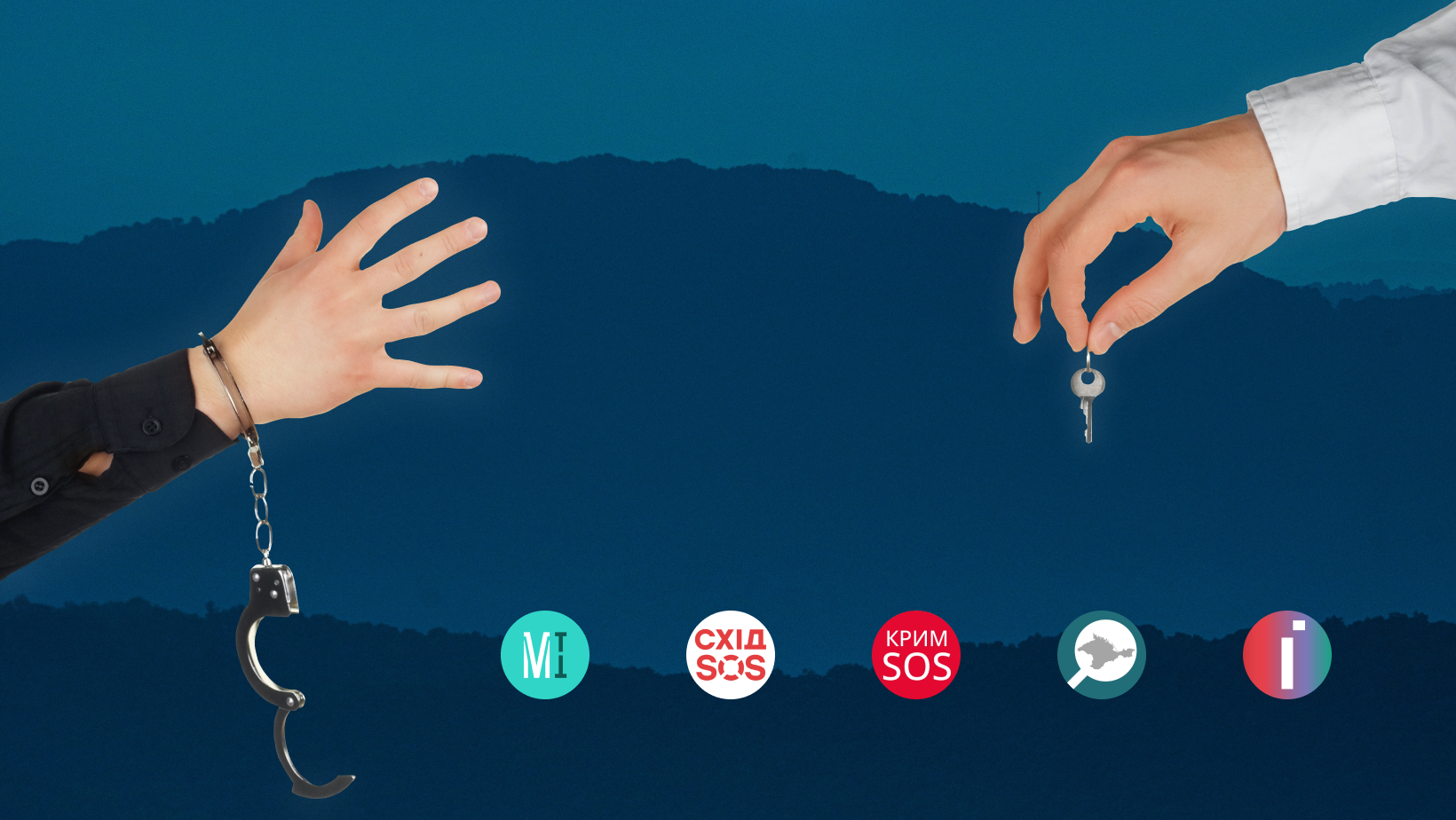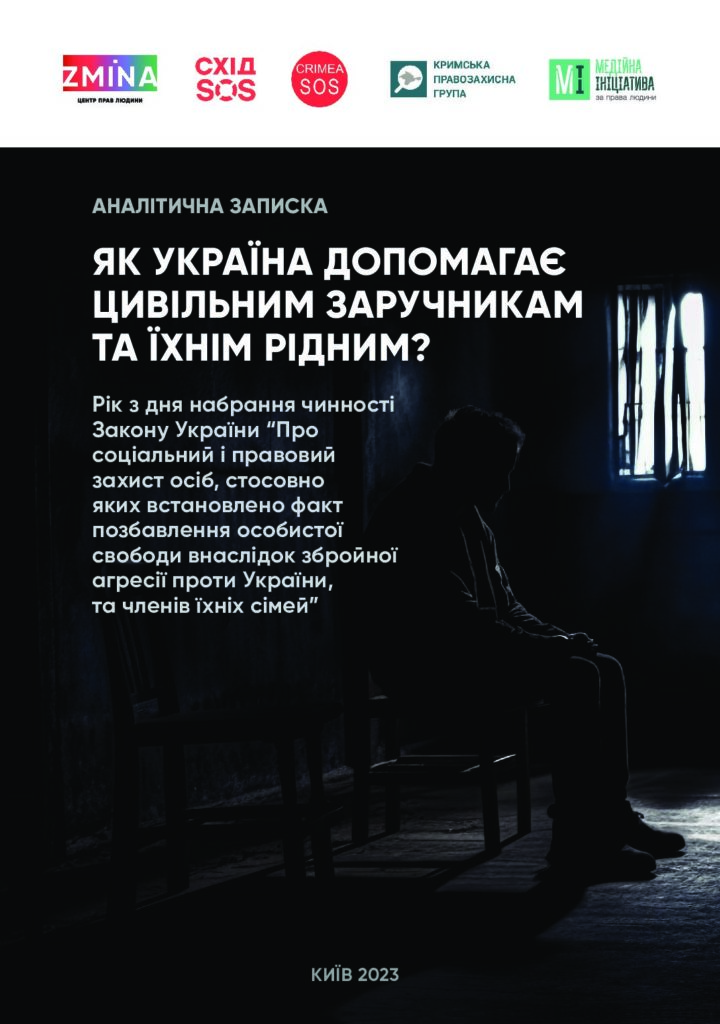Civilian prisoners and their families are almost unaware of their rights – human rights defenders
27 / 11 / 2023
Families of civilian prisoners abducted by russia, as well as citizens released from captivity, do not know enough about all the rights and guarantees provided by the state. These are the consequences of the not fully effective law on social and legal protection of civilian hostages and their families – human rights defenders point out.
As the executive director of the Media Initiative for Human Rights (MIHR) Tetiana Katrychenko said, since 2014, russia began abducting and persecuting civilians in the occupied territories of Ukraine, as well as Ukrainian citizens in the territory of the russian federation. According to Katrychenko, citizens of Ukraine were detained for long months and years, and their families and they themselves were left alone with this problem – the state had neither an effective release mechanism nor an effective support program.
Only a year ago, the law on social and legal protection of those who were deprived of their freedom as a result of armed aggression against Ukraine – prisoners of war, as well as civilian hostages and their families – entered into force.
The human rights activist pointed out that after the start of the full-scale war, the number of citizens detained be the russian federation increased.
“While, as of February 24, 2022 there were 301 names in the SSU list, now there are more then 1,300 names in the MIHR lists alone. In fact, there may be 3-4 times more people detained and abducted – we cannot specify the exact number due to the ongoing occupation and daily detentions”, – Katrychenko comments.
In addition, according to the Crimean Human Rights Group, russia holds at least 180 Ukrainian citizens imprisoned in occupied Crimea for political reasons.
According to CHRG lawyer Bohdan Melnykovych, according to the law, civilian hostages and their families can receive annual and one-time financial assistance, medical rehabilitation, payment of legal aid, provision of housing for temporary residence, educational benefits, etc. The workplace (position) of a person who was abducted by russia should also be kept. However, people can get these guarantees only after the commission formed under the Ministry of Reintegration confirms the fact of deprivation of liberty.
According to Aliona Luniova, advocacy director at the ZMINA Human Rights Center, the provisions of the law are not fully implemented in practice.
“Despite the fact that both the families of prisoners with whom we spoke and human rights organizations perceive the law positively in general, there are a number of problems. In particular, many families do not understand how the Commission, which operates under the Ministry of Reintegration and establishes the fact of deprivation of liberty as a result of the war, works. After all, the commission makes decisions behind closed doors and rarely communicates with people, which leads to mistrust of the families of prisoners”, – Luniova comments.
Among other problems pointed out by human rights defenders: the relatives of civilian hostages actually do not know and do not use other forms of support from the state, except for financial ones.
Anastasia Kalinina, CrimeaSOS lawyer, notes that public money is not enough to cover professional legal assistance. Currently, the maximum amount of compensation is UAH 53,680, although the cost of the services of lawyers who work in the occupation or defend Ukrainians in russia amounts to hundreds and thousands of dollars.
In addition, according to the law, the state shall provide temporary housing, because the victims often leave the occupied territories.
“Volunteers or acquaintances of affected people often help with housing. In turn, the state bodies did not answer us whether they provide such assistance comprehensively”, – Anastasia Kalinina noted.
When human rights activists made inquiries to various bodies that are supposed to provide assistance, not all of them provided clear information about the number of appeals from people, types and amount of assistance, etc. Kalinina says: no government agency seems to be monitoring how the guarantees provided by law to civilian hostages and their families are working.
Human rights defenders emphasize that the state should define a specific body that would work with civilian hostages, monitor the effectiveness of state aid, and also inform the families of captives and those released from captivity about their rights.
The full text of the analytical note on the operation of the law on legal and social protection of civilian hostages and their families can be found at the link below.
https://krymsos.com/wp-content/uploads/2023/11/czyvilni-zaruchnyky-1.pdf
